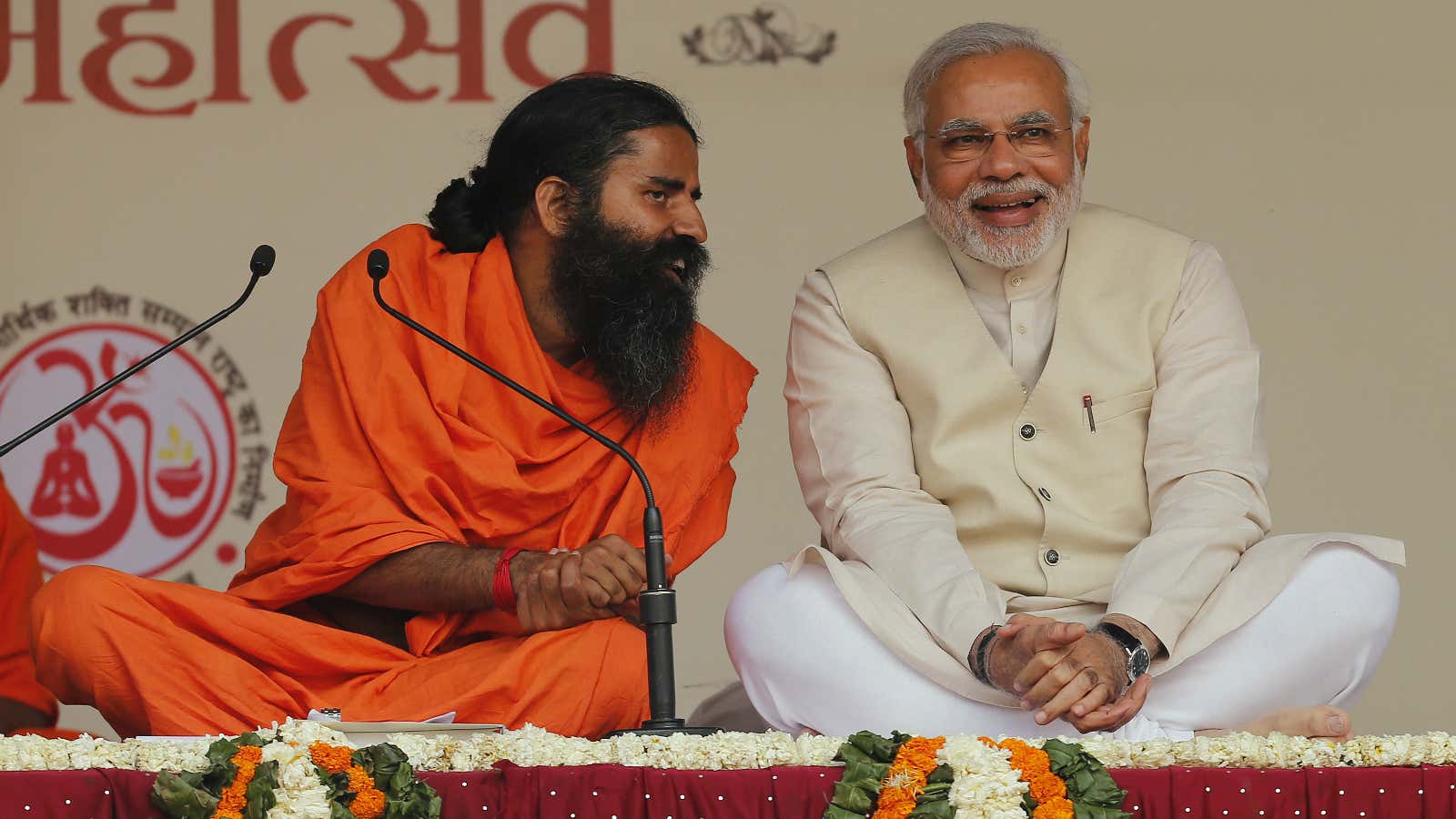Yoga guru Ramdev is a man on a mission.
After foraying into businesses such as cosmetics, education, baby foods, and even private security, the $1.6 billion Patanjali Ayurved now wants to burst into India’s troubled infrastructure sector.
The decade-old company, which built its business around ayurvedic products, has been reportedly approached by a number of Indian infrastructure firms seeking a buyout or a joint venture.
“We are always ready to help companies, if needed, but it has to align with the swadeshi movement. We have been approached by a lot of such companies in different sectors. We’ll only support the home-grown companies, especially those under stress, if it is needed and if we see we can make things better. That would strengthen our swadeshi movement,” a Patanjali spokesperson told the Mint newspaper. Swadeshi here refers to a call to buy only products made in India.
On the face of it, this may seem a little perplexing but it makes perfect sense on digging a little deeper.
This year, the Modi government has proposed to spend some Rs3.96 lakh crore ($59 billion) on infrastructure, including housing, railways, ports, and irrigation. India has a huge shortage of infrastructure and the government envisages an investment of over Rs43 lakh crore ($646 billion) over the next five years. Of this, 70% of will be needed in the power, roads, and urban infrastructure sectors.
This is a veritable goldmine for Patanjali, which has set a target of Rs20,000 crore ($3.1 billion) in turnover by the next fiscal (2017-2018). For this, the conglomerate is already in diversification mode, foraying into education, food, apparel, and even restaurants. Infrastructure, which has been in a slump since 2009, is a promising sector, especially if Patanjali can piggyback on the government’s revival plan.
“It is certainly a welcome step,” Vinayak Chatterjee, chairman of Gurgaon-based infrastructure services company Feedback Infra, said. “Patanjali has been a successful business for years. Foraying into the infrastructure sector is a clever move, especially since the prices of assets are much cheaper now.”
However, even if Patanjali manages to buy assets cheap, it will still have to circumvent the large debt that many of these companies carry. Stressed assets, including non-performing assets (NPAs) and restructured loans, form around 12% of the total loans in the Indian banking sector now. Corporate India’s bad loans stand at over $150 billion and the Reserve Bank of India has asked banks to initiate bankruptcy proceedings against 12 firms, mostly in infrastructure.
“The assets are going cheap now and if he (Ramdev) can manage the slowdown, he is in for (a) much better reward. Infrastructure is a cyclical business and in that sense, the timing is great,” Chatterjee said.
And this isn’t the first time the saffron-robed guru has eyed a stressed company. In January this year, Patanjali gave a new breath of life to debt-ridden Ruchi Soya, one of India’s largest edible-oil makers. Patanjali will begin branding and marketing the oil produced by Ruchi Soya across its 13 units.
Meanwhile, India plans to transform 98 of its cities—that account for 35% of the country’s urban population— into smart cities over the next six years spending Rs50,802 crore ($7.5 billion). Smart cities are envisaged as urban clusters with efficient transportation, e-governance, and social infrastructure, including healthcare and education.
Ramdev’s perceived closeness to the government is likely to help Patanjali’s plans. Already, according to Reuters, it has received more than an estimated $46 million in discounts over land acquisitions in states controlled by the Modi’s Bharatiya Janata Party.
Somebody stop me, says the guru!
